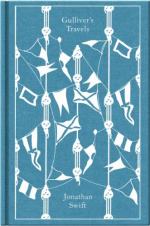He fell next upon the management of our treasury, and said he thought my memory had failed me, because I computed our taxes at about five or six millions a year, and, when I came to mention the issues, he found they sometimes amounted to more than double; for the notes he had taken were very particular in this point, because he hoped, as he told me, that the knowledge of our conduct might be useful to him, and he could not be deceived in his calculations. But if what I told him were true, he was still at a loss how a kingdom could run out of its estate like a private person. He asked me who were our creditors, and where we found to pay them. He wondered to hear me talk of such chargeable and expensive wars; that certainly we must be a quarrelsome people, or live among very bad neighbors and that our generals must needs be richer than our kings. He asked what business we had out of our own islands, unless upon the score of trade or treaty, or to defend the coasts with our fleet. Above all, he was amazed to hear me talk of a mercenary standing army in the midst of peace and among a free people. He said if we were governed by our own consent, in the persons of our representatives, he could not imagine of whom we were afraid, or against whom we were to fight; and would hear my opinion, whether a private man’s house might not better be defended by himself, his children, and family, than by half-a-dozen rascals, picked up at a venture in the streets for small wages, who might get a hundred times more by cutting their throats?
He laughed at my odd kind of arithmetic (as he was pleased to call it), in reckoning the numbers of our people by a computation drawn from the several sects among us, in religion and politics. He said, he knew no reason why those who entertain opinions prejudicial to the public should be obliged to change, or should not be obliged to conceal them. And as it was tyranny in any government to require the first, so it was weakness not to enforce the second: for a man may be allowed to keep poisons in his closet, but not to vend them about for cordials.




